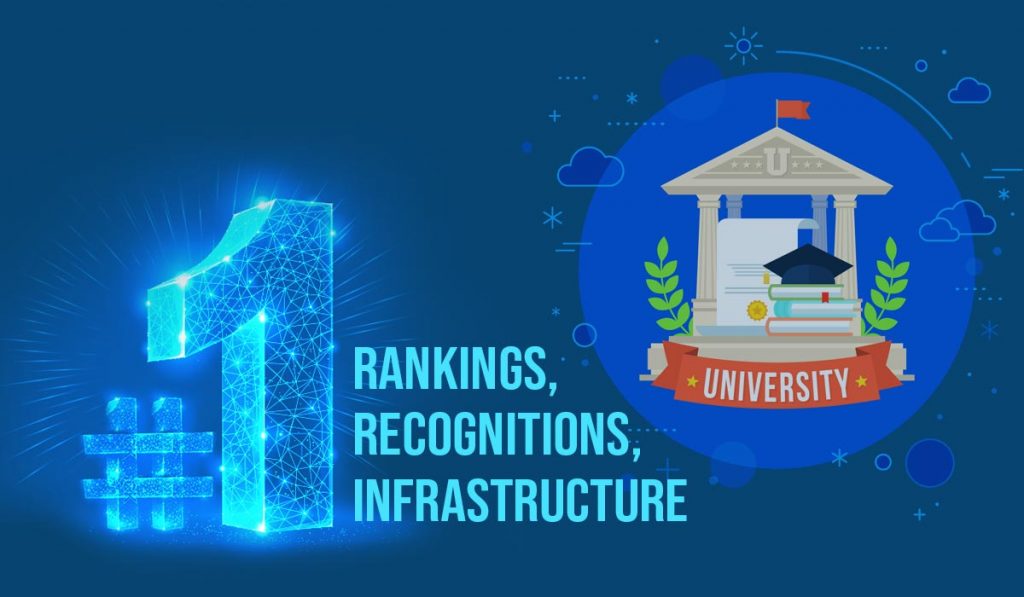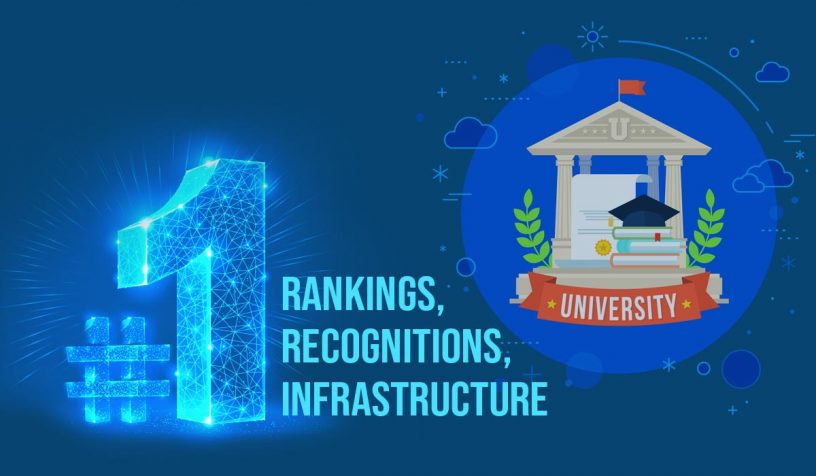
This study decodes why websites of private universities emphasise on the discourses of rankings, recognitions, and infrastructure.
Author
Anamika Srivastava, Associate Professor, Jindal Global Law School; Fellow at International Institute for Higher Education Research and Capacity Building (IIHEd). O.P. Jindal Global University, Sonipat, Haryana, India.
Summary
In the context of India, the current paper studies the ways in which select public and private universities are representing themselves on their own website. In the process, the objective is to reveal what claims on “quality” in higher education (HE), are made by these universities; and how and why marketing power/knowledge influences these claims.
Adhering to a critical realist discourse analysis approach, the paper not only describes the discourse on “quality” in HE on the selected universities’ websites but also makes an attempt to explain why marketing power/knowledge has come to have causal influence over the ways of knowing about “quality” in HE.
Invoking, a moderate constructionist theory which is compatible with critical realism, it is accepted that knowledge on “quality” in HE is constructed discursively. However, these constructions are also shaped by non-discursive factors such as materiality, structural, institutional and physical embodied elements.
The paper finds marketing power/knowledge is invested in the statements—both visual and textual, particularly on private universities’ websites. As mainstream marketing literature and practice recognize HE as a service and conceptualizes student/parent as a consumer, these universities’ websites have emerged as a site of playing out internet marketing strategies.
There is an emphasis on tangibilization of the so-called HE service so that a prospective “student/parent consumer” can see and find it cognitively easy to understand “quality” in HE. Consequently, one finds an emphasis on the discourses of “rankings”, “recognitions”, and “infrastructure” on these websites.
In addition to this, one also finds influence of post-modern marketing and post-modern attitude towards truth on these statements. Marketers believe more in the appeal of these statements than in their authenticity.
However, instead of invoking a relativist approach where only cultural factors are invoked to explain these influences, this paper hints towards materiality such as the ephemerality of the web, among others, as causal factors shaping these discourses.
Published in: Education Policy Analysis Archives
To read the full article, please click here.


